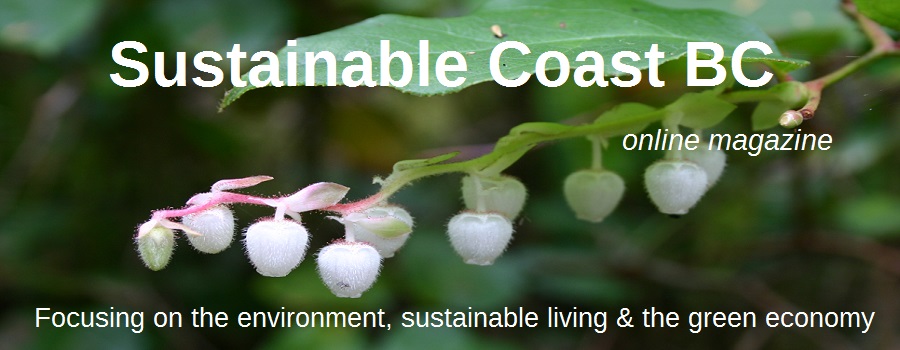Transitioning
- Details
- Category: Uncategorised Uncategorised
- Published: 09 January 2012 09 January 2012
Enbridge is proposing two pipelines to Kitimat BC to take Tar Sands gunk (more politely “bitumen”) to tankers who at 300 per year will take it to China as is, or to the United States for refining, thence China. Today I want to deal with the pipelines only. The horrible consequences of tankers on our coast are for another column.
First off, there is no question that there will be leaks and that any leak will be serious and in a remote area. The lines will cross over 800 rivers and streams, all fish bearing - three of which are important salmon spawning rivers.
Two questions arise. When there’s a spill somewhere in the heart of wilderness, how long does it take to find it and, once found, what can you do about it?
The answer is you don’t know and there’s nothing you can do about it.
Here is the interesting point – in their promotional materials, Enbridge expressly admits that there will be spills because they talk not of eliminating leaks but of "managing" them.
That last line is critical because it’s Enbridge’s confession that they cannot prevent spills – in fact the confession is certified by this release called Enbridge Line 6B Response, wherein Enbridge talks about “risks”, opening with this:
Because of their location and the products they carry, pipelines may come in contact with water, bacteria and various chemicals, all of which can corrode steel. Both the interior and exterior of the line are potentially subject to corrosion. We combat [not eliminate – my comment -RM] corrosion by:
- using high-quality materials and anti-corrosion coatings
- scheduling regular monitoring and inline inspections to check for corrosion
- scheduling excavation and repair programs identified by inline inspections
- using cathodic protection (a low level electrical current) to inhibit corrosion of underground pipelines
- using modelling tools to predict corrosion growth rates along pipelines
- using inline devices known as "pigs" to clean and inspect pipelines from the inside
- using specialized corrosion inhibitors within the pipeline to address internal corrosion”
Thus the candid admission that there will be spills.
Under Managing Stress Corrosion and Cracking, Enbridge says:
Stress corrosion cracking (SCC) is a crack initiation and growth process that can occur in steel pipelines. Research has shown that SCC is caused by a number of factors, including pipe material, stress and the environment surrounding the pipe. SCC typically occurs on the exterior of the pipe. This type of cracking has the potential to penetrate the steel and cause a pipeline break.
You will note that there is no action to eliminate stress corrosion.
Under Setting Leak Reduction Targets And Performance Goals: "We believe that pipeline safety and reliability begin with prevention. This means recognizing conditions that have been known to cause failures in the past – then working to minimize the risk."
Again, Enbridge does not talk about eliminating the “risk” but managing it!
This release confirms what The Common Sense Canadian has been saying all along: spills from pipelines are not “risks” at all but dead certainties.
There is more to it than this. Throughout the debate there has been no mention of outside causes such as terrorism or vandalism. Think on that a moment – 1070 km of dangerous Tar Sands gunk over a wilderness area and no one is considering these threats!
If there is a leak from any reason, how does Enbridge respond? How do they find the problem and once having found it, how do they get to it? Moreover, how do they get heavy equipment to the site, and once there, what the hell do they do about it?
A good example of how Enbridge handles spills is found in the spill in July 2010 in the Kalamazoo River in Michigan, a highly populated area. It took several days to get to the spill and in nearly 18 months Enbridge has not come close to cleaning it up!
In fact it’s not possible to clean up oil spills – the Exxon Valdes spill in 1989 is still not cleaned up.
No matter what is said, and by Enbridge’s confession, Pipeline ruptures cannot be stopped but are dead certainties, the only question being the damage done. In our case, by the nature of the location the resultant spills will create appalling, ongoing and long-term consequences.
We simply cannot let this happen.
